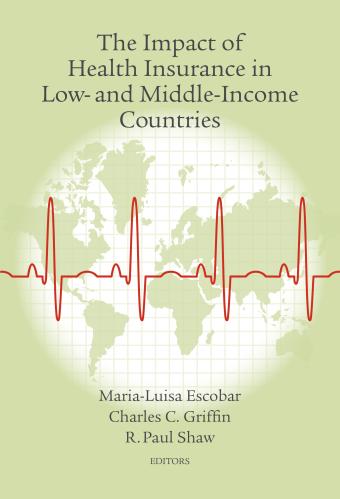Studies in this week’s Hutchins Roundup find that demand may overreact to the COVID-19 supply shock and exacerbate the recession, workers in jobs that can’t be done remotely are less likely to be white or have college degrees, and more. Want to receive the Hutchins Roundup as an email? Sign up here to get it in your inbox every Thursday.
The COVID-19 supply shock can lead to a demand deficient recession
Veronica Guerrieri of University of Chicago and coauthors argue that shutting down the economy to combat the COVID-19 pandemic will cause aggregate demand to contract, exacerbating the recession. They reason that demand will fall as workers in entire sectors lose their incomes, which will lead to a cascade of business failures and job destruction. Fiscal stimulus is less effective than usual because the fact that some sectors are shut down mutes the multiplier effect: workers in the shutdown sectors will benefit from direct government transfers, but increases in spending will not return to them as income, since their sectors will remain shut. The authors conclude that optimal policy involves providing wage replacement for affected workers and preventing job destruction. Monetary policy can prevent business closures by lowering debt payments. Profit subsidies or employer-side payroll tax cuts are also effective policies to prevent closures because businesses are required to remain open to receive aid; in contrast, lump-sum transfers would not necessarily prevent closures.
Workers who are unable to work remotely are the most economically vulnerable
Simon Mongey and Alex Weinberg from the University of Chicago find that workers with jobs that can’t be performed remotely are more economically vulnerable than workers who are able to work from home. In particular, workers who can’t work remotely are less likely to be white, have a college degree, or have employer-provided health insurance. They are also more likely to be in the bottom half of the income distribution and to rent their homes. In addition, these workers are less likely to have access to informal insurance channels that could help them weather the crisis: they are less likely to be married—which insulates household income against individual income risk—and less likely to be born in the U.S. or be U.S. citizens—which could mean they have less family support as well as restricted access to government social insurance programs. Moreover, they are more likely to have to have been unemployed in the last year, less likely to be employed full-time, and less likely to be employed in large firms.
Rise in inequality has boosted savings for the top 10% and increased borrowing by the bottom 90%
Atif Mian from Princeton, Ludwig Straub from Harvard, and Amir Sufi from the University of Chicago find that rising income inequality in the U.S. since the 1980s has generated a substantial increase in savings by those at the top of the income distribution. The authors show that, over the past 40 years, this “saving glut of the rich” was as large as the increase in the inflow of capital from overseas. Rather than being directed at investment, however, this savings glut has financed the large accumulation of debt by households at the bottom 90% of the income distribution. Since the Great Recession, however, household debt has fallen and the saving glut of the rich has financed a large portion of the rise in government debt. The authors anticipate that this trend will accelerate in the coming years given the enormous government spending proposals being considered at present to respond to the economic downturn precipitated by the COVID-19 health crisis.
Chart of the week: Fed agrees to finance loans new small-business payroll loans
Quote of the week:
“We are still faced with extraordinary uncertainty about the depth and duration of this crisis. It is already clear, however, that global growth will turn sharply negative in 2020. In fact, we anticipate the worst economic fallout since the Great Depression. Just three months ago, we expected positive per capita income growth in over 160 of our member countries in 2020. Today, that number has been turned on its head: we now project that over 170 countries will experience negative per capita income growth this year,” says Kristalina Georgieva, Managing Director of the International Monetary Fund.
The Brookings Institution is committed to quality, independence, and impact.
We are supported by a diverse array of funders. In line with our values and policies, each Brookings publication represents the sole views of its author(s).










Commentary
Hutchins Roundup: Demand deficient recessions, remote work, and more.
April 9, 2020